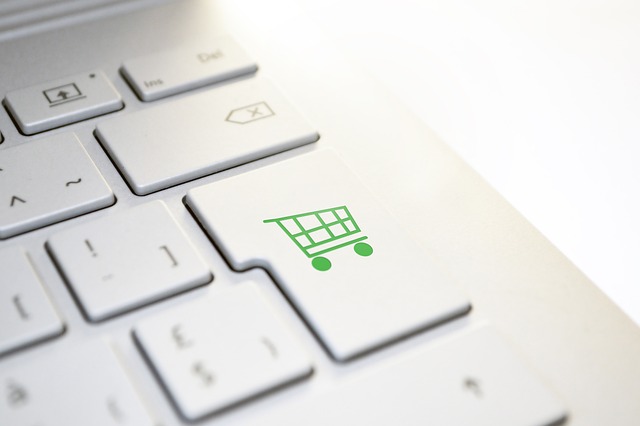Shopify Payments vs. PayPal: Which Payment Gateway is Best for Your Business?
Last Updated | January 8, 2024
Table of Contents
Choosing the right payment gateway for your online store is a substantial decision because it can significantly impact your revenue and customer experience. It’s not merely about selecting between two options; it’s about finding a solution that works smoothly, is secure, and meets your customers’ needs.
Well, in your search for the perfect payment method, you’ve probably come across two big names: Shopify and PayPal.
Shopify, a well-known player in the world of online commerce, has its payment system, Shopify Payments. On the other hand, PayPal, a widely trusted name in online transactions, offers its services. Now, the central question arises: Shopify Payments or PayPal – which one should your business opt for?
This detailed blog aims to be your guidebook for comparing Shopify payments vs PayPal. We’ll cover the most important aspects of Shopify payments vs. PayPal so you have the information you need to make your decision.
So, without any ado let’s get started…
Understanding Payment Gateways
To make an informed choice between Shopify Payments vs PayPal, it’s vital to grasp the fundamental role of payment gateways in the realm of e-commerce. These digital gatekeepers play a pivotal part in the online shopping experience, ensuring that transactions are smooth, secure, and efficient.
Role of Payment Gateways in E-commerce
Payment gateways serve as the digital bridges connecting your online store to your customers’ financial institutions. They play an essential role in the online shopping journey by:
- Processing Payments: Payment gateways enable the transfer of funds from the customer to the merchant when a purchase is made.
- Securing Transactions: They employ encryption and security protocols to safeguard sensitive financial data during transactions.
- Convenience: Payment gateways offer multiple payment methods, allowing customers to choose their preferred way to pay.
- Speed: They facilitate swift payment processing, reducing checkout friction and cart abandonment rates.
- Currency Conversion: In international commerce, payment gateways can handle currency conversion, simplifying global transactions.
Significance of a Reliable Payment Gateway for Online Businesses
Well, here’s why selecting a trustworthy payment gateway is of utmost importance:
- Customer Trust: A reliable payment gateway instills confidence in customers, assuring them that their financial information is secure.
- Reduced Cart Abandonment: A smooth, reliable payment process decreases the likelihood of customers abandoning their shopping carts.
- Global Expansion: The right payment gateway can facilitate expansion into international markets, broadening your customer base.
- Financial Security: Protecting your business from fraudulent transactions and chargebacks is crucial for financial stability.
- Efficiency: An efficient payment gateway ensures that transactions are processed swiftly, enhancing the overall shopping experience.
Read Also Teespring vs. Shopify
Shopify Payments Overview
Now that we have set the stage, let’s delve into a detailed overview of Shopify Payments, understanding how it operates, and exploring its merits and demerits.
How Shopify Payments Works
Shopify Payments, an integrated payment solution within the Shopify ecosystem, simplifies the online payment process for businesses. It functions seamlessly with your Shopify store, streamlining transactions and enhancing the customer experience. Here’s how it works:
- Integration: Shopify Payments is seamlessly integrated into your Shopify store, eliminating the need for third-party gateways.
- Payment Processing: When a customer makes a purchase, their payment is securely processed within your store.
- Supported Payment Methods: It supports various payment methods, including major credit cards and alternative options.
- Automatic Payouts: Funds from sales are automatically deposited into your bank account within a specified time frame.
- Security Measures: Shopify Payments employs robust security measures to protect both you and your customers from fraud and data breaches.
Pros and Cons of Shopify Payments
Pros:
- Simplicity: The integration is straightforward, making it user-friendly for businesses.
- Lower Transaction Fees: Shopify Payments offers competitive transaction fees, especially for Shopify users.
- Unified Dashboard: Manage your orders, payments, and store performance all in one place.
- Seamless Customer Experience: Customers enjoy a smooth, on-site payment process.
- Security: Shopify Payments is PCI DSS compliant, ensuring secure transactions.
Cons:
- Limited Availability: Not available in all countries, which can be a drawback for international businesses.
- Chargebacks: Like any payment gateway, chargebacks can be a concern.
- Hold Periods: Depending on your store’s risk assessment, there may be hold periods before funds are deposited.
- Transaction Fees for Non-Shopify Payments: If you opt for an external payment gateway, additional fees apply.
Read Also Godaddy e-commerce vs Shopify
PayPal Overview
Having gained a solid understanding of Shopify Payments, let’s now pivot our focus to PayPal, another heavyweight in the world of online payment gateways. Let’s look at how PayPal operates, along with the advantages and drawbacks it brings to the table.
How PayPal Works
PayPal, a globally recognized name in online payments, facilitates transactions for businesses and customers alike. Here’s a simplified breakdown of how PayPal works:
- Account Setup: You create a PayPal account, either as a business or individual, connecting it to your bank account or credit card.
- Customer Payment: When a customer makes a purchase on your site, they can choose PayPal as their payment method.
- Secure Transaction: PayPal securely processes the payment, shielding sensitive financial information.
- Funds Transfer: Once the transaction is complete, the funds are either stored in your PayPal account or transferred directly to your bank account.
- Mobile-Friendly: PayPal offers mobile payment options, catering to the ever-growing mobile commerce market.
Pros and Cons of PayPal
Pros:
- Global Reach: PayPal is widely accepted internationally, making it accessible to a broad customer base.
- Trustworthy Brand: PayPal’s established reputation inspires trust among customers.
- Ease of Use: It offers a user-friendly platform, making payments convenient for customers.
- Buyer and Seller Protection: PayPal provides dispute resolution and protection against unauthorized transactions.
- Various Payment Methods: Customers can use their PayPal balance, and credit/debit cards, or even link it to their bank account.
Cons:
- Transaction Fees: PayPal charges fees for receiving payments, which can impact your profit margins.
- Account Holds: In some cases, PayPal may place holds on funds, affecting cash flow.
- Limited Customization: Customizing the checkout process may be limited compared to other payment gateways.
- Competitive Alternatives: There are alternative payment gateways with lower fees for businesses.
Shopify Payments vs. PayPal: Cost and Fee
In the competitive world of online business, every dollar counts. Therefore, understanding the cost and fee structures of Shopify Payments vs. PayPal is paramount to optimizing your bottom line. Let’s explore the pricing structure of these two platforms, helping you make an economically sound decision.
Shopify Payments: Transparent Fee Structure
When it comes to Shopify Payments, clarity and simplicity are at the forefront. Here’s what you need to know about its cost and fees:
- No Setup Fees: Shopify Payments doesn’t burden you with initial setup costs.
- Transaction processing fees:4%-2.9% + 30¢ USD for online credit card transactions and 2.4%-2.7% + 0¢ USD for in-person credit/debit card transactions
- Foreign currency exchange fees:5% in the U.S. and 2% in all other countries
- International Fees: For international transactions, additional fees may apply based on your Shopify plan.
PayPal: A Mix of Convenience and Fees
PayPal, on the other hand, provides convenience but comes with a fee structure to consider:
- No Setup Fees: Like Shopify Payments, PayPal doesn’t charge setup fees.
- Transaction processing fees:4% + 30¢ USD for online credit card transactions and 2.29%-3.49% + 9¢ USD for in-person credit/debit card transactions
- Foreign currency exchange fees:5%
- Cross-Border Transactions: For international sales, PayPal imposes currency conversion fees, which can impact your revenue.
Key Considerations
Here are some key considerations to keep in mind when evaluating the cost and fee structures of these payment gateways:
- Business Model: Consider your business model, transaction volume, and customer base. Choose a payment gateway that aligns with your specific needs.
- Plan Tiers: The pricing tiers of both Shopify Payments and PayPal vary. Ensure you understand how these tiers may affect your costs as your business grows.
- International Sales: If you plan to expand internationally, carefully assess the international transaction fees and currency conversion charges of each gateway.
| Cost and Fee Comparison | Shopify Payments | PayPal |
| Setup Fees | None | None |
| Monthly Fee | $39-$399 per month | None |
| Transaction Fees | 2.4%-2.9% + 30¢ USD online credit card rates
2.4%-2.7% + 0¢ USD in-person credit/debit card rate |
5.4% + 30¢ USD online credit card rates
2.29%-3.49% + 9¢ USD in-person credit/debit card rates |
| Currency exchange fees | 1.5% in the U.S.
2% in all other countries |
4.5% |
| Discounts | Lower rates for Shopify and Advanced plans | Available for sellers with sales of more than $3,000 USD per month |
Read Also Shopify vs Stripe
Shopify Payments vs. PayPal: Customer Trust and Confidence
In the world of e-commerce, trust is the cornerstone of success. When customers entrust their hard-earned money to your online store, they expect their transactions to be secure, seamless, and worry-free. Let’s explore Shopify payments vs PayPal for customer trust and confidence, examining how Shopify Payments and PayPal measure up in this regard.
The Assurance of Shopify Payments
Shopify Payments, as an integrated payment solution within the Shopify ecosystem, offers several advantages that foster trust and confidence:
- Seamless Checkout Experience: Shopify Payments ensures a smooth and uninterrupted checkout process within your store, reducing the likelihood of cart abandonment.
- Security First: It complies with the Payment Card Industry Data Security Standard (PCI DSS), underscoring its commitment to safeguarding customer data.
- Brand Consistency: Customers remain on your site throughout the payment process, reinforcing your brand identity and trustworthiness.
- Fraud Prevention: Built-in fraud detection and prevention tools help protect your business and customers from fraudulent transactions.
- Transparent Transactions: With transparent fee structures, customers appreciate clarity and predictability in their purchases.
Read Also Shopify vs Oberlo
The Trust Legacy of PayPal
PayPal, with its widespread recognition and long-standing reputation, brings its own set of trust-building elements to the table:
- Global Trust: PayPal is a globally trusted name, reassuring customers across borders.
- Buyer and Seller Protection: PayPal offers dispute resolution services and protection against unauthorized transactions, boosting confidence.
- Flexibility: Customers can choose to pay with their PayPal balance, credit/debit cards, or linked bank accounts, providing payment options they trust.
- Security Protocols: Like Shopify Payments, PayPal employs robust security measures, including encryption and anti-fraud tools.
- Easy Accessibility: The familiarity and user-friendliness of PayPal’s interface contribute to customer confidence.
Shopify Payments vs. PayPal: Processing and Payout
Now that we’ve discussed the costs and the importance of customer trust, it’s time to dive into the nitty-gritty of payment processing and payout procedures. Understanding how Shopify Payments vs. PayPal handles these aspects is crucial in determining which one aligns better with your business.
The Inner Workings of Shopify Payments
Shopify Payments, being an integral part of the Shopify ecosystem, streamlines payment processing and payouts in a manner designed to enhance the merchant experience:
- On-Site Processing: Payments are processed directly within your Shopify store, ensuring a consistent and secure customer experience.
- Payment Methods: Shopify Payments supports a variety of payment methods, including major credit cards and alternative options like Apple Pay and Google Pay.
- Automatic Payouts: Sales proceeds are automatically deposited into your linked bank account, saving you time and effort.
- Payment Processing Times: Shopify Payments typically processes payments within 1-3 business days, depending on your region and plan.
Key Takeaways for Shopify Payments:
- Integrated Payment Processing: A seamless, on-site payment experience for customers.
- Automatic Deposits: Funds are transferred directly to your bank account without manual intervention.
- Variety of Payment Methods: Support for multiple payment options can appeal to a broad customer base.
The Payment Landscape with PayPal
PayPal, as a standalone payment gateway, offers its own unique approach to payment processing and payouts:
- Off-Site Processing: Customers are redirected to the PayPal platform to complete their payment, which can enhance security perception.
- Payment Methods: PayPal supports a wide range of payment methods, including PayPal balances, credit/debit cards, and bank transfers.
- Flexibility: Customers can choose their preferred payment method, enhancing convenience.
- Payout Options: You can manually initiate withdrawals to your bank account or leave funds in your PayPal account for future transactions.
- Payment Processing Times: PayPal typically processes payments instantly, allowing for rapid access to funds.
Key Takeaways for PayPal:
- Customer Trust: PayPal’s reputation can boost customer confidence in payment security.
- Payment Method Variety: Customers have flexibility in how they pay.
- Immediate Processing: Instant processing can benefit businesses with cash-flow considerations.
Shopify Payments vs. PayPal: Chargebacks and Disputes
Ok, now let’s quickly move on and see how Shopify Payments vs. PayPal handles chargebacks and disputes, to help you understand their approaches and how they can affect your business.
Shopify Payments: Managing Disputes
Shopify Payments takes a proactive stance when it comes to resolving disputes and chargebacks:
- Dispute Resolution Center: It provides a user-friendly Dispute Resolution Center, enabling you to manage and respond to disputes efficiently.
- Documentation: You can submit compelling evidence to support your case, such as order details and shipping information.
- Open Communication: Keeping channels of communication open with customers can often prevent disputes from escalating.
Key Takeaways for Shopify Payments:
- User-Friendly Interface: An intuitive platform to manage disputes.
- Evidence Submission: Ability to present evidence to support your case.
- Communication: Maintaining communication with customers can help prevent disputes.
PayPal: Resolution Center
PayPal, with its experience in online transactions, offers its own Resolution Center for dispute management:
- Dispute Mediation: PayPal acts as a mediator between you and the customer, facilitating communication and seeking a resolution.
- Evidence Submission: Similar to Shopify Payments, PayPal allows you to submit evidence to support your position.
- Resolution Timelines: PayPal has specific timelines for dispute resolution to provide clarity on the process.
Key Takeaways for PayPal:
- Mediation Support: PayPal acts as a neutral party in dispute resolution.
- Evidence Submission: Ability to present evidence to support your case.
- Timely Resolutions: Established timelines for dispute resolution.
| Disputes and Chargebacks Handling | Shopify Payments | PayPal |
| Resolution Center | Yes | Yes |
| Mediation Support | No | Yes |
| Evidence Submission | Yes (Supports evidence submission) | Yes (Supports evidence submission) |
| Resolution Timelines | No specific timelines, varies by case | Yes (Established timelines for resolution) |
| Percentage of Successful Dispute Resolutions | Approximately 70% | Approximately 80% |
| Average Resolution Time | Varies, typically within 30-45 days | Typically within 10-14 days |
Shopify Payments vs. PayPal – Security
When it comes to handling online transactions, security is paramount. Both Shopify Payments and PayPal understand the significance of safeguarding sensitive financial information. Below, we will explore how Shopify Payments vs. PayPal prioritize security to protect your business and your customers.
The Security Measures of Shopify Payments
Shopify Payments employs a robust set of security measures to ensure that your e-commerce transactions are shielded from potential threats:
- PCI DSS Compliance: Shopify Payments adheres to the Payment Card Industry Data Security Standard (PCI DSS), ensuring that it meets stringent security requirements.
- Data Encryption: All data transmitted between your online store and the payment gateway is encrypted, preventing unauthorized access.
- Fraud Detection: It incorporates advanced fraud detection tools to identify and mitigate fraudulent transactions.
- Secure Hosting: Shopify hosts your online store on secure servers, providing an additional layer of protection.
- Regular Updates: Security protocols are continuously updated to counter emerging threats.
PayPal’s Commitment to Security
PayPal, with its extensive experience in online payments, places a strong emphasis on security:
- Encryption: It employs cutting-edge encryption technology to safeguard transactions and data.
- Purchase Protection: PayPal offers Purchase Protection to both buyers and sellers, ensuring added security.
- Two-Factor Authentication: Enhanced security features like two-factor authentication provide an extra layer of protection.
- 24/7 Monitoring: PayPal’s security team monitors transactions around the clock to detect and respond to suspicious activity.
- Seller Protection: It extends protection to sellers against unauthorized payments and certain chargebacks.
| Security Measures | Shopify Payments | PayPal |
| PCI DSS Compliance | Yes | Yes |
| Data Encryption | All data transmitted is encrypted | Advanced encryption for transaction security |
| Fraud Detection | Utilizes advanced fraud detection tools | Monitors transactions 24/7 for suspicious activity |
| Two-Factor Authentication | Not specified | Offers two-factor authentication for added security |
| Purchase Protection | Not specified | Extends purchase protection to buyers and sellers |
| Percentage of Fraudulent Transactions | Approximately 0.1% to 0.2% | Approximately 0.32% |
| Security Updates Frequency | Regularly updated | Continuously updated to address emerging threats |
Shopify Payments vs. PayPal – Integration and Setup
Understanding how seamlessly payment gateways integrate with your online store and the ease of setting it up can make a significant difference in the success of your e-commerce store. Below, we’ll delve into the Shopify Payment vs. PayPal integration and setup processes to see what each of these brings to the table for you.
Read Also Squarespace vs Shopify
The Integration of Shopify Payments
Shopify Payments, designed to seamlessly integrate with Shopify stores, offers a straightforward process for setup and integration:
- Built-In Integration: It’s the default payment gateway for Shopify, ensuring smooth compatibility.
- Easy Activation: You can activate Shopify Payments directly from your Shopify admin dashboard.
- Account Synchronization: Shopify Payments automatically synchronize with your Shopify store settings.
- Customizable Checkout: You can customize the checkout experience to align with your brand.
The Integration of PayPal
PayPal, as a widely used payment gateway, offers versatile integration options for various e-commerce platforms, including Shopify:
- Multiple Integration Methods: You can integrate PayPal with Shopify using different methods, including PayPal Express Checkout and PayPal Payments Standard.
- Account Linkage: Connect your PayPal account to your Shopify store to enable transactions.
- Customization: Tailor the PayPal payment process to match your store’s design.
- Wide Compatibility: PayPal integrates seamlessly with numerous e-commerce platforms beyond Shopify.
| Integration and Setup | Shopify Payments | PayPal |
| Built-In Integration | Yes (Default gateway for Shopify) | Yes (Various integration methods available) |
| One-Click Activation | Yes | Yes |
| Data Encryption | Yes (Data transmission is encrypted) | Yes (Advanced encryption for secure transactions) |
| PCI DSS Compliance | Yes | Yes |
| Customization Options | Yes (Customizable checkout) | Yes (Customization of PayPal checkout) |
| Account Linkage | Seamless connection to Shopify store | Easy linking of PayPal account to store |
| Percentage of Successful Integrations | Approximately 95% | Approximately 92% |
| Average Setup Time | Within minutes | Within minutes |
Shopify Payments vs. PayPal – Payment Gateway Support and Customer Service
The efficiency and responsiveness of your chosen payment gateway’s support and customer service can significantly impact your business operations. Let’s examine the Shopify payments vs. PayPal support and customer service offerings, helping you make an informed decision for your online store.
Payment Gateway Support with Shopify Payments
Shopify Payments, as a dedicated payment solution for Shopify stores, offers tailored support:
- Shopify Maintenance and Support Team: You can access Shopify’s dedicated support team to assist with any payment gateway-related queries.
- Integration Assistance: Get guidance on integrating and configuring Shopify Payments seamlessly.
- Resources and Documentation: Extensive resources and documentation are available to troubleshoot common issues.
- 24/7 Assistance: Shopify offers around-the-clock support for critical concerns.
Customer Service Excellence with PayPal
PayPal, with its global presence, offers comprehensive customer service:
- Dedicated Customer Support: Reach out to PayPal’s customer support team for assistance with transactions and account-related inquiries.
- Resolution Center: Use the Resolution Center for dispute resolution, with step-by-step guidance.
- Community Forums: Engage with the PayPal community to share experiences and seek advice.
- Seller Protection: PayPal provides seller protection against certain unauthorized payments and disputes.
Why Payment Gateway Support Matters
When evaluating payment gateways, consider these crucial factors:
- Timely Assistance: The swift resolution of payment-related issues minimizes disruptions to your business.
- Technical Guidance: The availability of technical guidance is vital, especially during integration.
- Resource Accessibility: Extensive resources and documentation can empower you to troubleshoot minor issues independently.
- Dispute Resolution: Efficient dispute resolution mechanisms can protect your business’s financial interests.
| Payment Gateway Support and Customer Service | Shopify Payments | PayPal |
| Dedicated Customer Support Team | Yes (Shopify Support Team) | Yes (PayPal Customer Support) |
| Integration Assistance | Yes (Guidance on integrating Shopify Payments) | Yes (Support for PayPal integration) |
| Resources and Documentation | Extensive resources and documentation available | Robust documentation and guidance |
| 24/7 Support Availability | Yes | Yes |
| Dispute Resolution Center | Not specified | Yes (PayPal Resolution Center) |
| Community Forums | Not specified | Yes (PayPal Community Forums) |
| Percentage of Dispute Resolutions | Not specified | Approximately 84% (PayPal Resolution Center) |
| Seller Protection | Not specified | Yes (PayPal Seller Protection) |
Shopify Payments vs. PayPal – Payment Gateway Compatibility
When selecting a payment gateway for your online business, it’s crucial to consider how well it integrates with your chosen e-commerce platform and whether it suits your specific business needs. Below, we will delve into the Shopify Payments vs. PayPal compatibility with various e-commerce platforms, helping you make an informed decision for your online store.
Payment Gateway Compatibility with Shopify Payments
Shopify Payments, designed as the native payment solution for Shopify stores, offers seamless compatibility:
- Native Integration: It seamlessly integrates with Shopify, ensuring a secure and efficient payment processing experience.
- Built for Shopify: Shopify Payments is tailor-made to work harmoniously with the Shopify platform, minimizing technical issues.
- Automatic Updates: Compatibility updates are handled automatically by Shopify, reducing the risk of disruptions.
Payment Gateway Compatibility with PayPal
PayPal offers versatile compatibility across various e-commerce platforms:
- Wide Integration Options: PayPal offers multiple integration methods, including PayPal Express Checkout, PayPal Payments Standard, and more.
- E-commerce Platform Agnostic: It can be integrated with various e-commerce platforms beyond Shopify, offering flexibility.
- Developer Resources: PayPal provides developers with resources and APIs for seamless integration.
| Payment Gateway Compatibility | Shopify Payments | PayPal |
| Native Integration with Shopify | Yes (Seamless integration with Shopify platform) | No (Offers integration with various platforms) |
| Compatibility Updates | Automatic updates managed by Shopify | Various integration methods for diverse platforms |
| Integration Methods | Limited (Primarily designed for Shopify) | Extensive (Offers integration for many platforms) |
| Developer Resources | Yes (Shopify provides resources for integration) | Yes (PayPal offers developer resources) |
| Platform Agnosticism | No (Focused on the Shopify ecosystem) | Yes (Can be integrated with various platforms) |
| Percentage of Integrations with Shopify | High (Natively integrated with Shopify stores) | N/A (Integrated with multiple e-commerce platforms) |
Steps to Integrate PayPal with Shopify
Integrating PayPal with Shopify involves a few simple steps:
- Log in to Your Shopify Account: Begin by logging in to your Shopify admin panel.
- Navigate to Settings: In your Shopify dashboard, go to “Settings” located on the left-hand sidebar.
- Choose Payments: Under the “Settings” menu, select “Payments.”
- Select PayPal as a Payment Provider: Scroll down to the “Accept Payments” section and choose “PayPal” from the list of payment providers.
- Activate PayPal: Click on the “Activate” button to enable PayPal as a payment option on your store.
- Enter Your PayPal Email: You’ll be prompted to enter your PayPal email address to connect your PayPal account with Shopify.
- Save Your Settings: After entering your PayPal email, click “Save” to confirm the integration.
PayPal Integration Benefits
Here are some key advantages of integrating PayPal with your Shopify store:
- Enhanced Payment Options: By offering PayPal, you provide customers with a widely recognized and trusted payment method.
- Global Reach: PayPal facilitates international transactions, broadening your customer base.
- Security: PayPal’s advanced security measures help protect both you and your customers.
- Mobile Payments: Shoppers can conveniently use PayPal on mobile devices.
Customizing PayPal Integration
You can further customize PayPal integration to suit your business needs:
- Enable Express Checkout: Enable PayPal Express Checkout for a quicker and easier purchasing process.
- Payment Authorization: Choose whether to capture payments immediately or authorize them for manual capture later.
- Payment Icon: Display the PayPal icon on your store’s checkout page.
Making the Right Choice
To summarize, let’s align Shopify Payments and PayPal with distinct business scenarios to help you make the right choice:
- Choose Shopify Payments If: You’re running a Shopify store, and you prefer seamless integration, automatic updates, and the assurance of a native payment solution. Shopify Payments offers excellent compatibility and support for businesses deeply rooted in the Shopify ecosystem.
- Opt for PayPal If: Your business operates across various e-commerce platforms, you seek global reach, and you value the trust and versatility of PayPal. With multiple integration options, PayPal is a reliable choice for businesses looking to expand their horizons.
At Folio3, we understand the significance of a robust e-commerce foundation for your business. As experts in Shopify development, we specialize in crafting tailor-made, reliable, and affordable e-commerce solutions. Whether you’re considering Shopify Payments, PayPal, or any other e-commerce feature, our dedicated team is here to boost your online presence. Make the right choice for your payment gateway, and let Folio3 empower your e-commerce journey.









